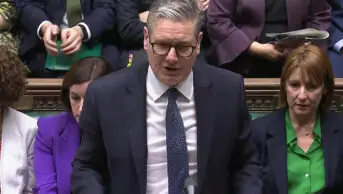Industrial action is firmly back in UK healthcare. We saw a couple of years of industrial action over pay under the tail-end period of the former Conservative government — one of Labour’s first acts in office was to settle the pay dispute with the junior doctors, who maintained fairly broad public support.
Now, it is the turn of the pharmacy sector to take action. The National Pharmacy Association (NPA) balloted its members on work-to-rule action in September 2024. The proposed motion asked members if they were willing to reduce services and “put NHS leaders on notice that they will cut their hours to contract minimums” if the financial situation for pharmacies does not improve.
The NPA is not a trade union, so this ballot was only advisory.
Health secretary in ‘dislikes strike threat’ shock
To the considerable surprise of absolutely nobody, this move was not welcomed by health secretary Wes Streeting. His response at the Labour Party Conference, on 22 September 2024, was to criticise the holding of a ballot as a threat.
Streeting told the event that the NPA’s ballot offered “an unhelpful degree of sabre-rattling”.
“I kind of understood that when we were 14 years into a Conservative government, because people hadn’t seen change,” he said.
However, Streeting added that he could not understand, from a tactical point of view, why weeks into a brand-new government, the organisations would come forward and threaten collective action.
The NPA — and the sector broadly — might sensibly decline to take tactical advice from the person who will have to reallocate money from elsewhere in the NHS budget if pharmacy is to get more funds, which is its aim.
Sadik Al-Hassan, Labour’s new MP for North Somerset and a community pharmacist by profession, weighed in behind Streeting on X (formerly Twitter), saying “that it seems out of step to have action now from the NPA”.
“Surely this would have made more sense in August 2021, year three of the funding settlement. Strike action now it seems will only delay or damage a potential new settlement,” he added.
Once again unsurprisingly, the NPA’s membership endorsed action by a huge majority. Out of a turnout of 63%, 93% of Welsh respondents voted yes, while 99% in Northern Ireland and 99% in England voted yes — this is what you might call a supermajority.
Pharmacy last
Some 98% of pharmacy owners in England said they would be willing not to open for hours above the minimum required by their contract, meaning fewer pharmacies would be open in the evenings and on weekends.
Meanwhile, 96% of owners voted to withdraw from locally commissioned services, such as smoking cessation and emergency contraception services.
If enacted, the cumulative effect of this, and the other proposed actions to which members agreed, would clearly be to stop Pharmacy First dead in its tracks. Also let’s remember that an analysis by the NPA in June 2024 revealed that 63% of pharmacies in England cut their opening hours since 2015, owing to a 40% decline in funding over the past decade.
The NPA’s leadership is planning to recommend that action should not start until January 2025, to allow for a response from the health secretary and the Department of Health and Social Care.
It’s worth bearing in mind that, as the Pharmaceutical Journal pointed out a few weeks ago, community pharmacy is badly set up to take industrial action.
The Pharmaceutical Journal rightly noted that “the community pharmacy contract is set up to drive competition between contractors”.
“If the ‘work-to-rule action’ does go ahead as the NPA describes… it will be independent pharmacies that will lose even more money as patients are forced to choose a competing pharmacy that offers the services they require,” it added.
An effective campaign, with lots of information, should run two to three months ahead of a representative day of strike action
So, how can the industrial action be effective and keep public opinion onside?
The first smart move would be for the sector to bring together as many representative bodies, from across pharmacy, in a concerted communications campaign to highlight the problems facing the sector.
Patients have already noticed problems in medicines supply and with pharmacy closures. Also, patients are the leverage that pharmacists and pharmacies need.
An effective campaign, with clear messages and lots of information, should run over a period of two to three months ahead of a representative day of strike action. At every single pharmacy contact with patients during this lead-in time, a short leaflet entitled ‘Why we don’t want to strike, and why we might have to’ should be handed over.
This ‘more in sorrow than in anger’ campaign must be combined with effective lobbying. For example, there must be ‘spend-to-save’ calculations that would appeal to the Treasury. Leaders’ messages must always read: “The government has inherited an awful problem. We want to work with them to fix it, but it will mean change.”
The messages can align perfectly with the ‘triple shift’ of Labour’s embryonic health policy, particularly the shifts from treatment to prevention and from acute to community. This is an opportunity, but not to re-litigate the period since 2010. The sector accepted bad deals during that time and it needs to make the case for a better deal now.
Andy Cowper is the editor of Health Policy Insight


